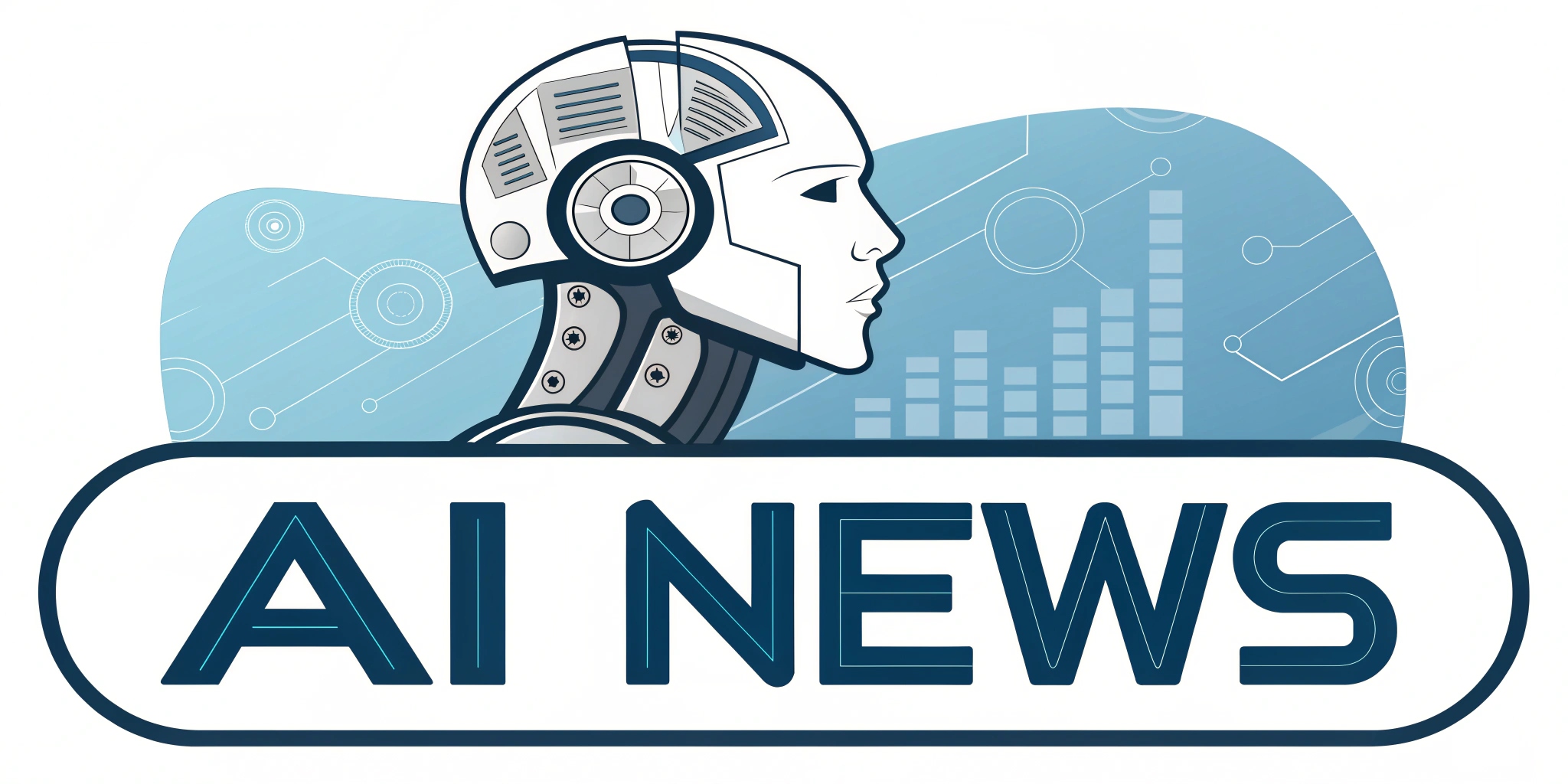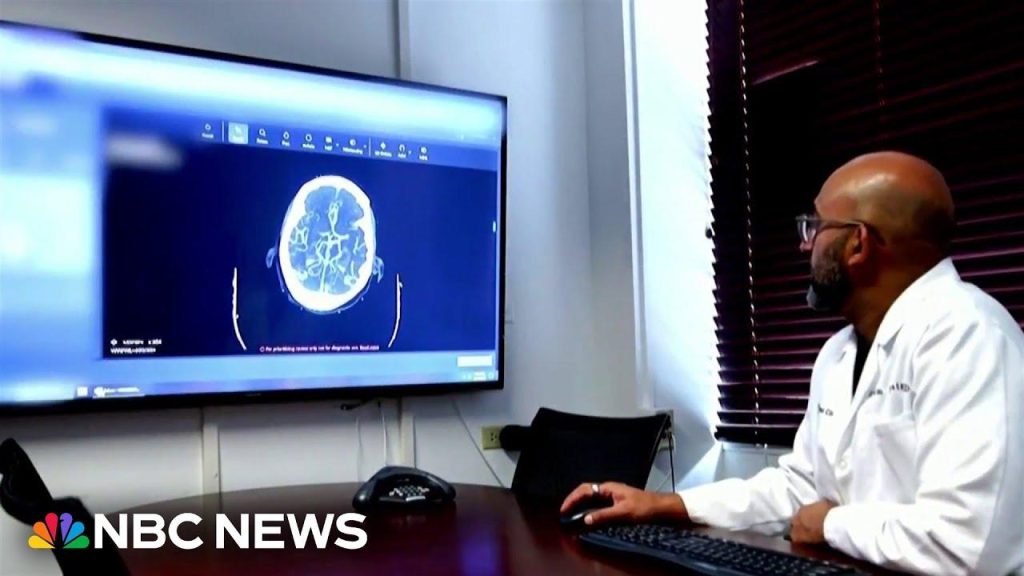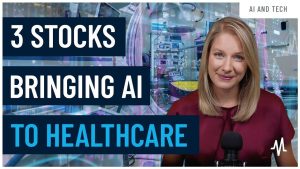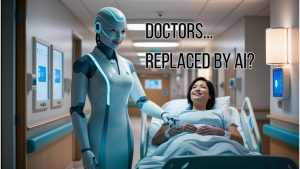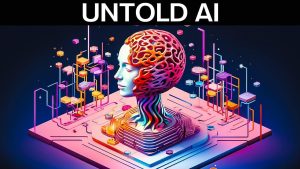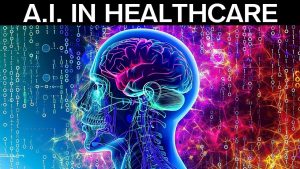As the integration of artificial intelligence into healthcare continues to evolve, innovative solutions are emerging that could revolutionize the way doctors diagnose and treat patients. At the forefront of this technological shift is Dr. Irene Wong, research director at the Epilepsy Center at the Cleveland Clinic, who harnesses AI to enhance medical outcomes for individuals battling epilepsy. In her lab,AI algorithms analyze extensive MRI scans to identify and highlight areas of concern,offering physicians a valuable second opinion that can lead to life-altering decisions for patients like 34-year-old Ryan Millinger. Diagnosed with epilepsy at a young age, Ryan faced a long and challenging journey with his condition.However, with the advent of AI technology, doctors discovered a safe surgical option that had previously seemed too risky. As healthcare providers increasingly recognize the potential of AI, with 75% expecting widespread adoption within the next three years, leading medical institutions are investing in AI expertise to improve patient care without compromising ethical standards.This emerging partnership between healthcare professionals and advanced technology holds promise for a new era in medicine, offering both doctors and patients the possibility to make informed and confident decisions about treatment paths.
The Role of Artificial Intelligence in Enhancing Medical Diagnostics
Artificial intelligence is increasingly becoming an essential ally in the realm of medical diagnostics, providing substantial improvements in the accuracy and speed of identifying various health conditions.By processing vast datasets with extraordinary efficiency, AI systems are designed to detect subtle patterns that may elude even the most experienced practitioners. As an example, in radiology, algorithms can scrutinize imaging studies and flag anomalies such as tumors or fractures, thereby assisting doctors in prioritizing cases that require immediate attention. This collaborative approach not only alleviates the burden of routine checks but also enhances the overall diagnostic workflow in healthcare settings.
Moreover, AI’s potential extends beyond initial assessments. It facilitates ongoing patient monitoring by analyzing real-time data from wearable devices and electronic health records, enabling healthcare providers to track patient progress and adjust treatment plans proactively. The technology bridges gaps in communication and data interpretation among clinicians, fostering a culture of shared insights and informed decision-making. With AI’s ability to integrate seamlessly into existing systems and support the decision-making process, medical professionals can deliver tailored care that reflects both cutting-edge research and personalized patient needs, ultimately resulting in improved health outcomes.
Empowering Doctors with AI as a Second Opinion
In the constantly evolving landscape of healthcare, the integration of artificial intelligence serves as a vital resource, empowering medical practitioners by offering another layer of expertise during the decision-making process. By leveraging sophisticated algorithms capable of processing extensive quantities of clinical data, AI provides healthcare professionals with insightful recommendations and predictive analytics. This technology assists in constructing differential diagnoses,enabling physicians to consider a broader range of possibilities and reducing the likelihood of misdiagnosis. With its adeptness at pinpointing intricate patient patterns and nuances,AI encourages a thorough review of patient information while staying aligned with individual health histories and conditions.As a result, doctors are positioned to engage in more informed discussions with their patients about treatment options and potential risks involved.
Moreover, the implementation of AI as a supportive tool fosters an habitat of continuous learning within medical teams. Professionals gain access to an ever-growing repository of case studies that AI systems analyze, integrating new findings and trends into conventional practice. This ongoing education not only sharpens their diagnostic acumen but also enhances collaborative efforts among specialists, breaking down traditional silos within the medical field. As AI technology further advances, its ability to function as an intelligent consultant assists in honing clinical judgment, ensuring that every patient receives the most informed care possible. Embracing this technology will likely lead to significant shifts in patient outcomes and overall healthcare efficiency.
Transforming Patient Outcomes Through Technological Innovation
The rise of artificial intelligence in the healthcare setting not only aids in diagnosis but also streamlines treatment strategies tailored to individual patient needs. By utilizing predictive analytics, clinicians can foresee potential health risks and develop proactive care plans to mitigate complications. This technology offers insights derived from historical patient data, which informs a more holistic understanding of each case. Some of the advantages that AI brings to patient treatment include:
- Personalized Care Plans: Customizing treatment based on unique patient characteristics and history.
- Resource Optimization: Allowing healthcare facilities to allocate their resources more effectively based on predictive patient trends.
- Enhanced Communication: Facilitating clearer dialog between doctors and patients through data-driven explanations of treatment options.
Furthermore, the integration of AI transforms the doctor-patient relationship by empowering patients to take an active role in their healthcare journeys. With AI tools offering detailed insights about their conditions, patients can engage in informed discussions about their options. This shift not only elevates patient satisfaction but also fosters greater trust in medical recommendations.As healthcare continues to embrace these innovations, professionals and patients alike stand to benefit from improved outcomes and a renewed sense of agency in managing health.
Navigating the Ethical Implications of AI in Healthcare
The rapid deployment of AI in healthcare brings forth significant ethical considerations that practitioners and institutions must address. Foremost is the issue of patient consent and transparency regarding AI involvement in diagnostic procedures. It is indeed crucial for healthcare providers to communicate openly about how AI algorithms utilize patient data and the methodologies behind their recommendations. Moreover, ensuring that AI systems are trained on diverse datasets is essential to prevent biases that could lead to detrimental outcomes for underrepresented populations. Proactive measures, such as establishing clear guidelines and protocols, can assist in upholding ethical standards while maximizing the benefits of AI technologies in clinical settings.
In addition,the collaboration between AI and healthcare professionals necessitates a balance between human intuition and machine-generated insights. As reliance on technology grows, questions arise about accountability in cases of misdiagnosis or treatment errors. Consequently, it is vital to keep human oversight central to the diagnostic process, allowing medical experts to interpret AI findings critically. Implementing interdisciplinary teams that incorporate ethicists, technologists, and clinicians can help foster a complete understanding of the interaction between AI, patient care, and ethical responsibilities. By promoting an ethical framework that prioritizes patient welfare and informed decision-making, the healthcare industry can navigate the challenges posed by emerging AI technologies effectively.
